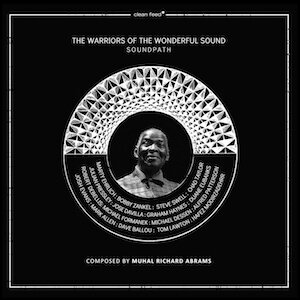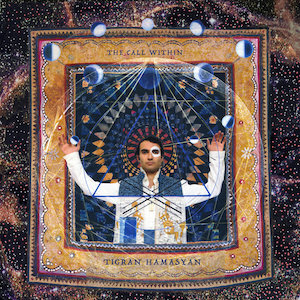Label: Truth Revolution Records, 2021
Personnel - Justin Robinson: alto saxophone; Andrea Brachfeld: flute; Bill O’Connor: piano; Santi Debriano: bass, guitar; Tommy Campbell: drums.
Panamian-born bassist/composer Santi Debriano, who was raised in Brooklyn since the age four, has forged a stable path in the left side of jazz through remarkable collaborations, both on record and on stage, with luminaries like Sam Rivers, Archie Shepp, Oliver Lake and David Murray. Although capable of spawning powerful grooves and holding complex rhythms, Debriano fails to impress with this new outing, Flash of the Spirit.
His quintet comes forward with the uptempo “Awesome Blues”, prescribing a straightforward swinging motion in seven with an indelible Latin feel attached. Alto saxophonist Justin Robinson and flutist Andrea Brachfeld get together in bright unisons, with all the members of the group - including pianist Bill O’Connor, drummer Tommy Campbell and Debriano himself - enjoying minutes to stretch out.
“Funky New Dorp” is Debriano homage to Staten Island’s community in its effort to deal with the damages inflicted by the Hurricane Sandy in 2012. Here, Robinson’s horn is a consistent source of speed and articulation.
“Natural Causes” and “Toujours Petits” are rhythmically boosted by the Brazilian percussionist Valtinho Anastacio. The former piece presents melodic parallelism between bass and flute and discreet shifts in rhythm, while the latter, written for Debriano’s three children, allows some harmonic comparison to Ivan Lins and Milton Nascimento while promoting a strong folk charisma in the melody and a sweltering Brazilian rhythm enhanced with the presence of mandolin and tambourine.
The lineup is adaptable, and if “For Heaven’s Sake” is a bass monologue that lasts for 2:42 minutes, “Beneath the Surface” is a melancholy piano/bass duet composed by O’Connell, and where Debriano bows with gloomy despondency.
Rounding out the record are three covers competently delivered but lacking soulful twists. Ornette Coleman’s “Humpty Dumpty” is the strongest, exploring outside playing. The others are Kenny Dorham’s earnest ballad “La Mesha”, in which Debriano overdubs an electric guitar solo, and a tepid piano-less rendition of Kenny Barron’s “Voyage”.
Unfortunately, Flash of the Spirit doesn’t distinguish itself from other new releases in the genre.
Grade C+
Favorite Tracks:
01 - Awesome Blues ► 05 - Toujours Petits ► 06 - Humpty Dumpty










































